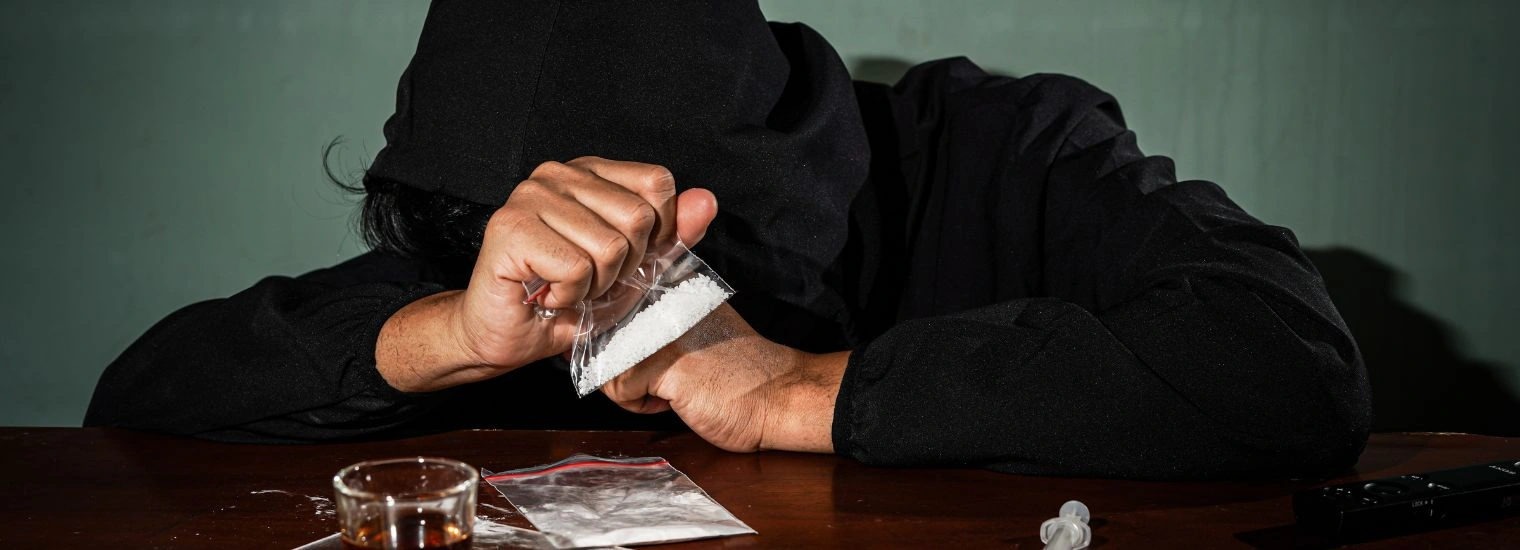Effective Ways to Overcome Cocaine Use and Depressive Disorders
Do you or a loved one struggle with combined depression and cocaine? If so, you are far from alone – when it comes to depression, cocaine dependence is a common co-occurrence.
This intertwined relationship happens because those with depressive symptoms often turn to cocaine use (or other stimulants) to feel temporary relief from the low mood. However, repeated cocaine abuse disrupts the brain’s pleasure reward system, leading to cocaine addiction.
At Icarus Nevada, our treatment program has successfully helped many cocaine addicts cease substance abuse and learn to manage their depression without drugs or alcohol. The staff at our accredited recovery center equips each client with the tools to overcome cocaine and depression and enjoy long-term sobriety.
Please continue reading if you want to learn more about the interconnected nature of cocaine use and depression. We’ll guide you in understanding why it happens and how to overcome these combined mental health disorders.
Cocaine Use Disorder Is a Legitimate Diagnosis

First, let’s touch on the topic of Cocaine Use Disorder. Sometimes, well-intentioned loved ones presume that cocaine use is a “choice.” Or they tell cocaine addicts to “just stop using it.”
But the fact is that cocaine addiction is a mental health problem, diagnosed under the conditions in the American Psychological Association’s Diagnostic and Statistical Manual (DSM-5).
How Cocaine Dependence Forms
Chronic cocaine use often begins in people who suffer mood swings, as you might notice with anxiety, major depression, or bipolar disorder. The person with depression wants to feel pleasure and starts experimenting with self-medication.
They may try anything from heroin (which has depressive effects) to methamphetamine (another stimulant). For many, the substance use that provides them the most relief is cocaine abuse.
Soon after they start using the drug, the drug starts to interrupt the brain’s pleasure center, which leads to less dopamine production. As their body starts depending on frequent cocaine use, they feel little or no pleasure without the drug. They can no longer stop using cocaine without help.
The “high” of cocaine is short-term, and cocaine users experience withdrawal symptoms unless they use cocaine again.
Get Effective Detox and Rehab Options at Icarus
Cocaine Abuse Can Have Depressive Effects
While cocaine is a stimulant initially, it later causes a crash in dopamine and serotonin, the neurotransmitters that regulate our moods. This sudden drop can leave cocaine users exhausted, depressed, irritable, or sad.
With long-term use, cocaine use can gradually deplete the brain’s ability to feel pleasure or motivation because of the drug’s interference with key neurotransmitters. The impact of this on people who already have depression can be dangerous.
Icarus Offers a Holistic Approach to Cocaine Use and Depression

Our treatment program addresses not only the cocaine but also the underlying causes of the addiction. It can sometimes be difficult to tell which came first – the cocaine dependence or the depressive symptoms.
Regardless, we take a holistic approach to resolving substance use disorders, other mental health consequences, and any physical health problems associated with cocaine addiction.
Every client we care for benefits from our structured setting and personalized recovery programs. The next sections provide you with an overview of our program options.
Dual Diagnosis: Treatment for Cocaine and Depression Simultaneously
Our dual diagnosis programs address both cocaine addiction and co-occurring depressive disorders at the same time. An integrated approach to mental health care is the key to our high success rates – treating only one at a time would leave clients with unresolved issues. That would put them at risk for developing depression and drug use again in the future.
Our team includes licensed addiction specialists – counselors, therapists, nurses, and a psychiatrist. We care about the well-being of each client and provide support for each person throughout each medical intervention, from the early withdrawal period to creating a relapse prevention plan. We leave no stone unturned in managing the symptoms of depression with cocaine addiction.
Managing Cocaine Withdrawal Safely in Medical Detox

Quitting cocaine cold turkey is difficult, and cocaine withdrawal symptoms can lead to some of the following conditions:
- Moodiness
- Fatigue
- Agitation
- Worsening depression due to the effects of cocaine on dopamine
- Self-harm or suicidal thoughts
- Body aches
- Muscle pain
- Tremors and shakiness
- Chills
- Nausea, vomiting, stomach aches
- Restlessness
- Headaches
- Dangerous fluctuations in blood pressure
- Intense cravings to use cocaine
During acute withdrawal symptoms, the medical detox specialists at Icarus Nevada ensure client wellness.
We treat intense cocaine withdrawal symptoms with FDA-approved medications to manage the symptoms of both cocaine and depression and make this first treatment phase more tolerable.
Get Accredited Treatment Programs at Icarus – Call Now!
Treating Depressive Symptoms with Antidepressant Medications
Treating the symptoms of depression at the same time as we treat substance use symptoms can be challenging for some people.
When necessary, our mental health provider may prescribe Selective Serotonin Reuptake Inhibitors (SSRIs) or other antidepressant medications to reset the brain’s neurotransmitters serotonin and dopamine.
At Icarus Nevada, our doctor evaluates each client carefully and decides if medication is appropriate. We tailor prescriptions to meet each person’s needs; they complement therapy and behavioral support to provide a well-rounded treatment plan.
Individual Therapy for Cocaine Users
Receiving treatment one-on-one from a licensed therapist provides a safe space to explore the depression that fuels one’s cocaine use. Therapy helps clients learn about their triggers, process trauma, and learn how to cope without relying on drugs or alcohol.
With time, these sessions can build a desire for change and help clients understand the behaviors that lead to addictive patterns.
Peer Groups and Therapy to Build Skills

In addition to individual treatment, clients usually work with peer groups to build skills. Among their peers, clients learn effective communication, practice emotional regulation, and role play relapse prevention strategies.
Trying these new skills with their peers instead of in the general population reduces shame and increases accountability. It also allows them to learn to form appropriate social support, which will be a necessary short-term goal after leaving the recovery center.
Family Therapy to Build a Support System
Those who use cocaine often experience strained family relationships. Healing is possible, but it often takes professional treatment to restore the bonds of trust. Attending treatment as a family allows loved ones to understand the symptoms of depression and the effects of cocaine better, allowing family members to become a better support system.
Once they can spot the signs of developing depression, they will be able to intervene sooner if symptoms recur and steer the client toward follow-up treatment. Family therapy also helps both the client and loved ones set boundaries and productive, honest conversations.
Behavioral Tools to Overcome Depression and Cocaine Addiction
Icarus Nevada drug counselors offer evidence-based behavioral tools to help clients manage cocaine cravings, build sober daily routines, and stay well emotionally. These can include CBT worksheets, mood trackers, mindfulness techniques, and SMART Recovery strategies.
When clients have mastered tools to support a drug-free life, they have a better chance of avoiding future cocaine use.
Aftercare Planning to Prevent Relapse

The challenges of avoiding cocaine and managing depression don’t go away after leaving a formal recovery program. Upon graduation, every client becomes responsible for leading their own way to a life of sobriety.
Before leaving the treatment center, those who used cocaine will create a manual to help forge this new path. It’s the aftercare plan, and it contains strategies to:
- Avoid people, places, and situations that tempt them to use cocaine
- Manage cravings using evidence-based strategies
- Quickly reach out to a trusted person for help when anxiety or depression strikes
- Find local support groups (Cocaine Anonymous, Narcotics Anonymous, or SMART Recovery meetings)
- Continue to take depression prescriptions on schedule if needed
- Find new, healthy activities for relaxing to replace using cocaine
This planning helps past clients lead a balanced life, avoiding cocaine abuse and keeping depression well-managed.
Up To 100% of Rehab Costs Covered By Insurance – Call Now!
Contact Icarus Nevada for Co-Occurring Depression and Cocaine Abuse
Icarus Nevada, located in Las Vegas, provides clients with customized treatment programs and a supportive environment for overcoming dual diagnosis cocaine addiction and depression. Our facility is comfortable, welcoming, and feels like a home, not a clinic.
We accept self-pay clients but also accept most group and private health plans. Contact our admissions department if you are unsure about your mental health benefits. They will be glad to check your eligibility and benefits to lower or completely eliminate your out-of-pocket costs.
Call Icarus Nevada today for cocaine and depression treatment as soon as tomorrow.



